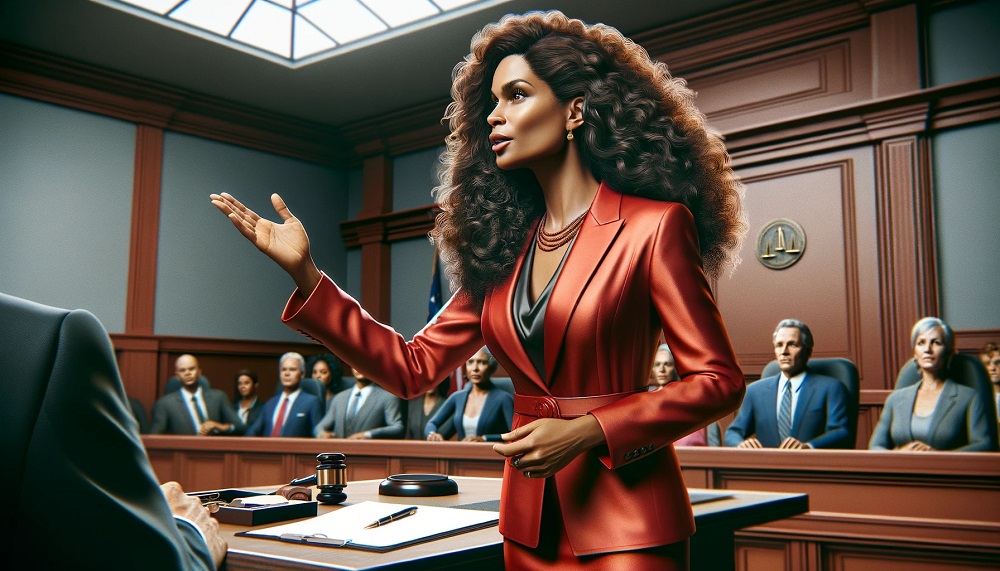When faced with a situation that infringes on your civil liberties, the path to justice may seem daunting. This is where the expertise of a civil rights attorney comes into play. They are not just lawyers but passionate advocates for fairness, equality, and constitutional rights. This guide will explain how such an attorney can navigate the complexities of the legal system to bring your case to success and, where necessary, how they collaborate with specialists like a personal injury attorney or a car accident attorney.
Understanding Your Civil Rights
Civil rights law covers various protections against discrimination and violating fundamental human freedoms. This includes rights to freedom of speech, privacy, freedom of assembly, protection from discrimination based on race, religion, gender, and more. Civil rights attorneys specialize in cases where these rights have been violated, whether through unfair employment practices, wrongful incarceration, or other forms of discrimination.
When to Consult a Civil Rights Attorney
- Unjust Treatment by Public Officials or Law Enforcement: If you’ve been subjected to unfair treatment by public entities, a civil rights lawyer can help you seek justice.
- Discrimination in the Workplace or Educational Institutions: For issues like harassment or unequal treatment based on your identity, legal intervention is crucial.
- Violations During Peaceful Protests: If your right to peacefully assemble is hindered, consulting with a civil rights lawyer is advisable.
How a Civil Rights Attorney Can Assist You
Strategic Legal Planning
A civil rights attorney will first assess the merits of your case, considering the specific violations and applicable laws. They will craft a legal strategy tailored to your circumstances, potentially involving federal and state civil rights laws that provide the backbone for your legal recourse.
Filing and Litigation
After planning, the following steps involve filing the necessary legal documents. Your attorney will manage all facets of the litigation process, from filing complaints to representing you in court. This stage is critical and requires skilled legal expertise to ensure every detail is meticulously documented and presented.
Collaboration with Other Legal Experts
In some instances, your civil rights case might intersect with other areas of law. For example, suppose you’ve suffered an injury during an unlawful encounter with law enforcement. In that case, your civil rights attorney might work alongside a personal injury attorney to ensure all aspects of your case are comprehensively addressed.
Settlement Negotiation and Trial Representation
Many civil rights cases are settled out of court. A seasoned civil rights lawyer will negotiate tirelessly on your behalf to secure a fair settlement. However, if a satisfactory agreement cannot be reached, your attorney will be prepared to take your case to trial, advocating for you every step of the way.
Case Studies of Successful Civil Rights Cases
- A Landmark Employment Discrimination Case: A civil rights attorney successfully represented a group of employees who faced racial discrimination at a large corporation, resulting in significant policy changes and employee compensation.
- Protecting Protesters’ Rights: In another case, protesters were wrongfully arrested. The civil rights attorney secured their release and won a lawsuit against the city for violations of their right to assemble.
Navigating Complex Legal Waters
Understanding and Applying Federal and State Laws
Civil rights laws can be complex, involving multiple federal and state statutes layers. A proficient civil rights attorney will understand these laws and how they apply to specific circumstances. This includes familiarity with landmark civil rights cases and current legal trends that can influence the outcome of your case.
Utilizing Constitutional Protections
Many civil rights cases hinge on constitutional protections such as the First Amendment (freedom of speech and assembly) and the Fourth Amendment (protection against unreasonable searches and seizures). Using previous court decisions and legal precedents to support your case, your attorney will argue how these constitutional rights have been violated.
The Emotional and Psychological Support
Dealing with civil rights violations can be emotionally taxing. An experienced attorney provides legal support and emotional and psychological guidance throughout the process. They understand the stress involved and work to make the legal journey as smooth as possible, ensuring clients receive the support they need to cope.
Educational Advocacy
A civil rights attorney’s role is to educate clients about their rights and the legal process. This education is crucial for clients to make informed decisions about their cases. It includes understanding potential outcomes, the risks of pursuing legal action, and the steps involved in the litigation process.
Expanding Horizons: Broader Implications of Civil Rights Advocacy
Promoting Social Change
Beyond individual cases, civil rights attorneys play a crucial role in broader social advocacy. Challenging unjust laws and practices contribute to societal changes that benefit more prominent communities. Successful cases can lead to changes in public policies and create precedents that protect others from similar violations in the future.
Collaborative Efforts
Civil rights attorneys often collaborate with other professionals in more complex scenarios, including human rights organizations, community groups, and other legal specialists. These collaborations can amplify a case’s impact, spreading awareness and fostering a collective response to civil rights issues.
The Importance of Choosing the Right Attorney
Specialization and Experience
The effectiveness of a civil rights attorney often depends on their specialization and experience. Clients should seek out attorneys who have a proven track record in civil rights law and who have handled cases similar to theirs. This specialization ensures that the attorney is well-equipped to navigate the specific challenges of civil rights litigation.
Reputation and Reliability
A civil rights attorney’s reputation in the legal community and among past clients can be a strong indicator of their reliability and effectiveness. Prospective clients should consider reviews and testimonials from previous clients and any awards or recognitions the attorney has received for their work in civil rights law.
Conclusion
The journey through a civil rights case can be complex and demanding. With the right civil rights attorney by your side, you can confidently navigate this path. These legal professionals defend your rights and empower you to stand against injustice. Whether your case requires the focused expertise of a car accident attorney following an unjust incident or a civil rights lawyer’s broad, compassionate advocacy, choosing the right legal help is your first step toward achieving justice. Remember, each case brings justice to the individual and contributes to the larger framework of civil rights protection for all.




